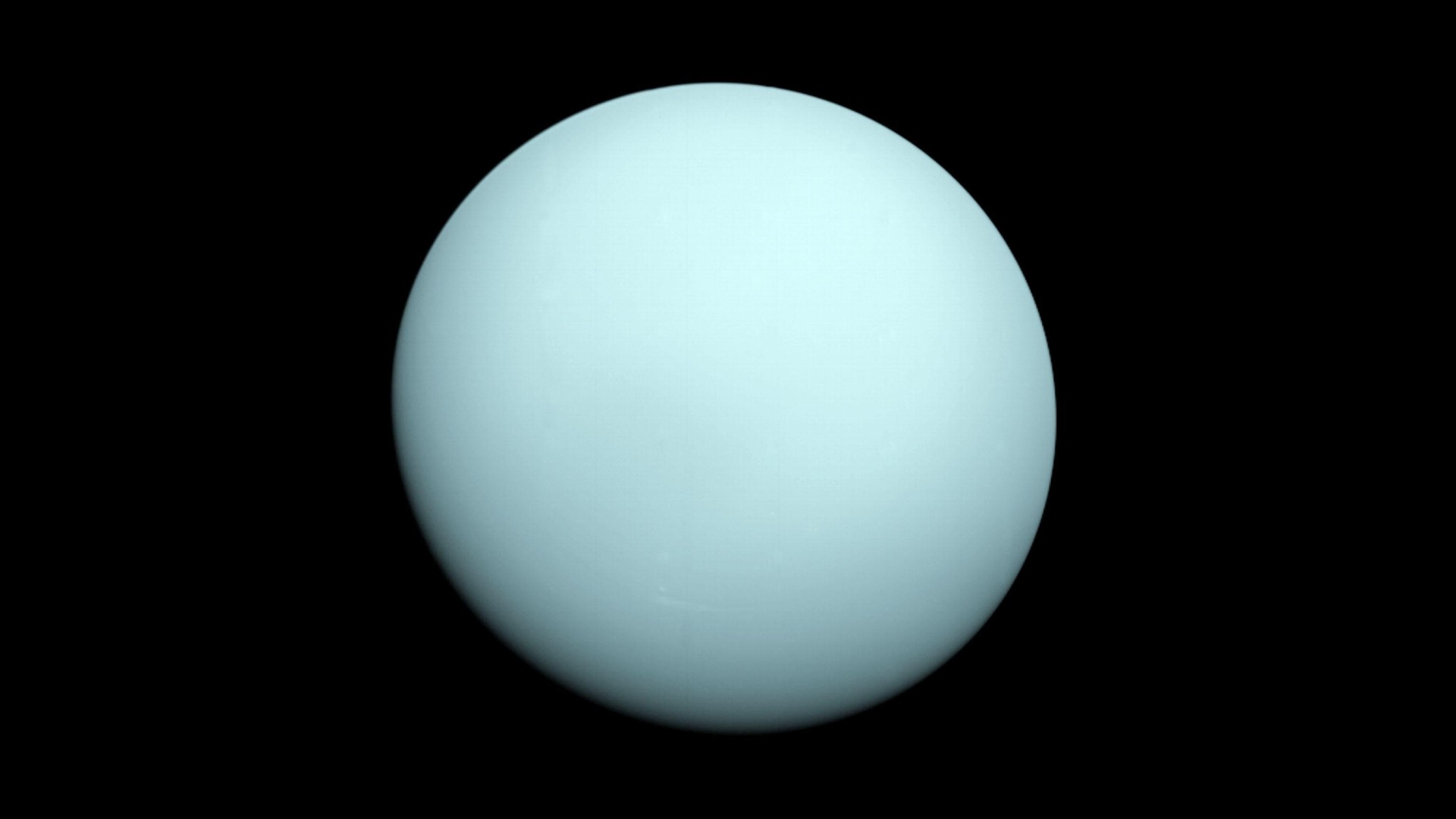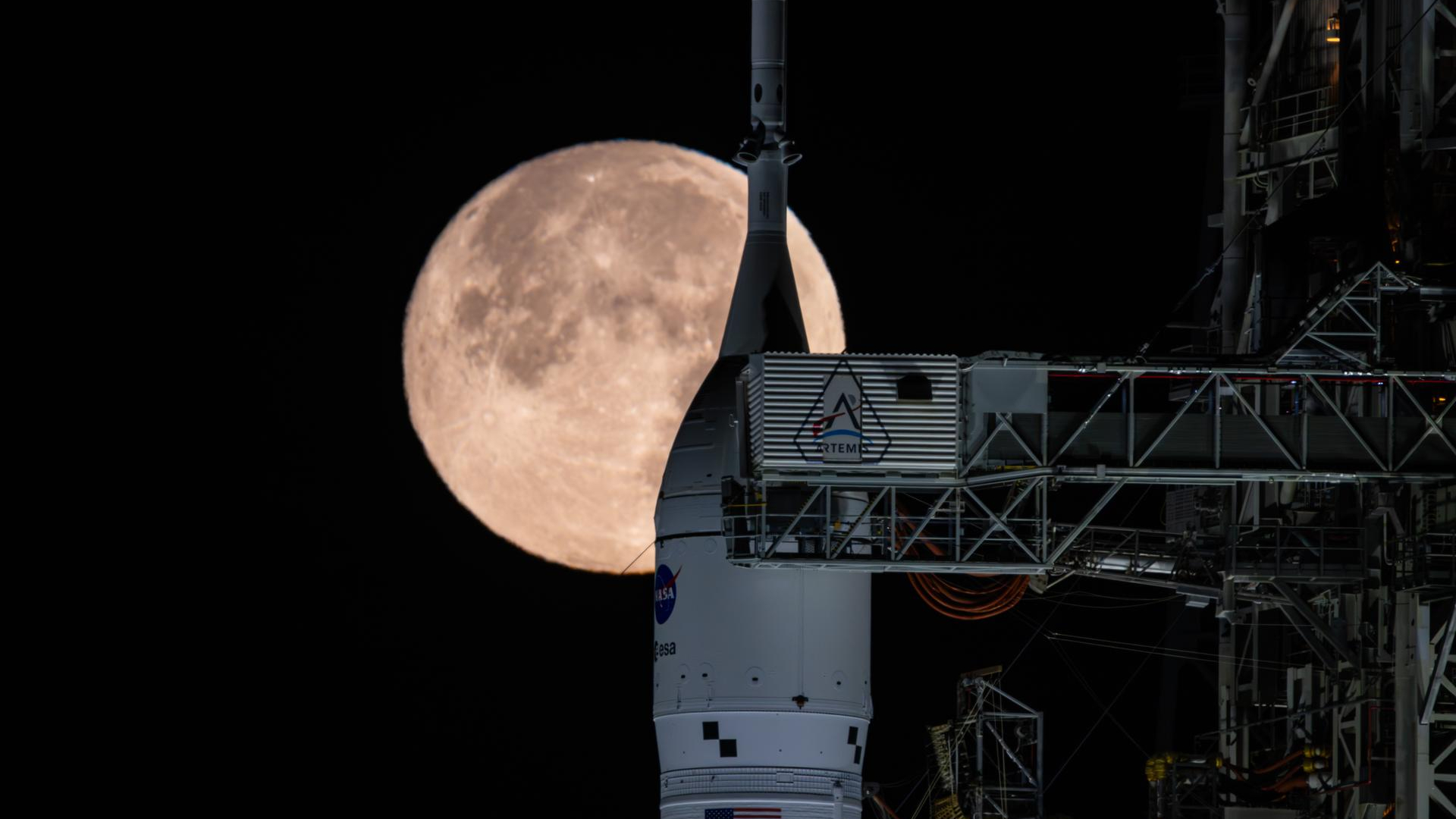What would you name a Uranus probe? The internet's answers are about what you'd think
From Shakespeare to "Se7en," these ideas run the gamut.

Breaking space news, the latest updates on rocket launches, skywatching events and more!
You are now subscribed
Your newsletter sign-up was successful
Want to add more newsletters?

Delivered daily
Daily Newsletter
Breaking space news, the latest updates on rocket launches, skywatching events and more!

Once a month
Watch This Space
Sign up to our monthly entertainment newsletter to keep up with all our coverage of the latest sci-fi and space movies, tv shows, games and books.

Once a week
Night Sky This Week
Discover this week's must-see night sky events, moon phases, and stunning astrophotos. Sign up for our skywatching newsletter and explore the universe with us!

Twice a month
Strange New Words
Space.com's Sci-Fi Reader's Club. Read a sci-fi short story every month and join a virtual community of fellow science fiction fans!
Earhart, Tempest or MUSE?
Fans of planet Uranus have many ideas to name the next mission there, if an informal Internet poll is any indication.
ExploreIGO, a Twitter fan account devoted to icy worlds, asked its community yesterday what to call a spacecraft visiting the big blue world.
"We want to know, what would YOU name the #Uranus Orbiter & Probe Mission?" the account asked, generating tens of thousands of likes, retweets and comments. That name the account references is an early stage proposal for NASA to finally revisit the planet that hasn't seen an up-close view since Voyager 2 swung by in 1986.
In photos: Top 5 weird facts about mysterious Uranus
Embedded with the tweet is a cover based on a 2021 proposal by three scientists led by Amy Simon, a planetary scientist at NASA Goddard Space Flight Center. The group told the U.S. decadal survey of planetary science that a spacecraft to Uranus is a "journey whose time has come."
Uranus was voted the top destination by the community in April after this proposal process, which was led by the National Academies of Sciences, Engineering and Medicine.
Breaking space news, the latest updates on rocket launches, skywatching events and more!
The decadal committee called for a $4 billion flagship mission combining a Uranus orbiter and probe, to examine the icy giant's wild weather and enigmatic features from up close. It would be the first time a smaller icy gas giant gets a detailed mission, after others visited the much larger Jupiter and Saturn.
The mission, if accepted, would leave Earth in 2031 or so and take 13 years to move to the outer solar system, but unlike Voyager, it would orbit Uranus for many years instead of just swinging by. But the mission is by no means a done deal. It requires funding and a measure of scientific and technical will to get the ambitious spacecraft proposal together.
In the meantime, observatories like the Hubble Space Telescope and the W. M. Keck Observatory continue to observe Uranus from afar to look at its atmosphere, rings and moons.
The tentative nature of the Uranus mission didn't stop Twitter from sharing its naming ideas. Community favorites reference everything from Shakespeare to polar exploration to the space shuttle program. Some examples include:
- Caroline, after astronomer Caroline Herschel; she worked alongside her brother William, who is popularly credited as finding the first two known moons of Uranus;
- Discovery, after NASA's most-flown space shuttle (which itself was named after one of the two ships used by British explorer James Cook when he 'discovered' Hawaii);
- Earhart, after aviation pioneer Amelia Earhart;
- Endurance Orbiter and Shackleton Probe, which are the ship and leader (respectively) of the Ernest Shackleton expedition to Antarctica in 1914-17
- M.U.S.E, an acronym for Mission Uranus Science Expedition;
- Se7en, an homage to its seventh planet position from the sun along with a 1995 thriller starring Morgan Freeman;
- Tempest, after the Shakespeare play. (Uranus moon names traditionally come from Shakespeare characters, or characters from Alexander Pope's "Rape of the Lock.")
And yes, there were plenty of butt joke names for the Uranus probe, but we opted to spotlight some of the more surprisingly restrained ones.
Follow Elizabeth Howell on Twitter @howellspace. Follow us on Twitter @Spacedotcom and on Facebook.

Elizabeth Howell (she/her), Ph.D., was a staff writer in the spaceflight channel between 2022 and 2024 specializing in Canadian space news. She was contributing writer for Space.com for 10 years from 2012 to 2024. Elizabeth's reporting includes multiple exclusives with the White House, leading world coverage about a lost-and-found space tomato on the International Space Station, witnessing five human spaceflight launches on two continents, flying parabolic, working inside a spacesuit, and participating in a simulated Mars mission. Her latest book, "Why Am I Taller?" (ECW Press, 2022) is co-written with astronaut Dave Williams.
